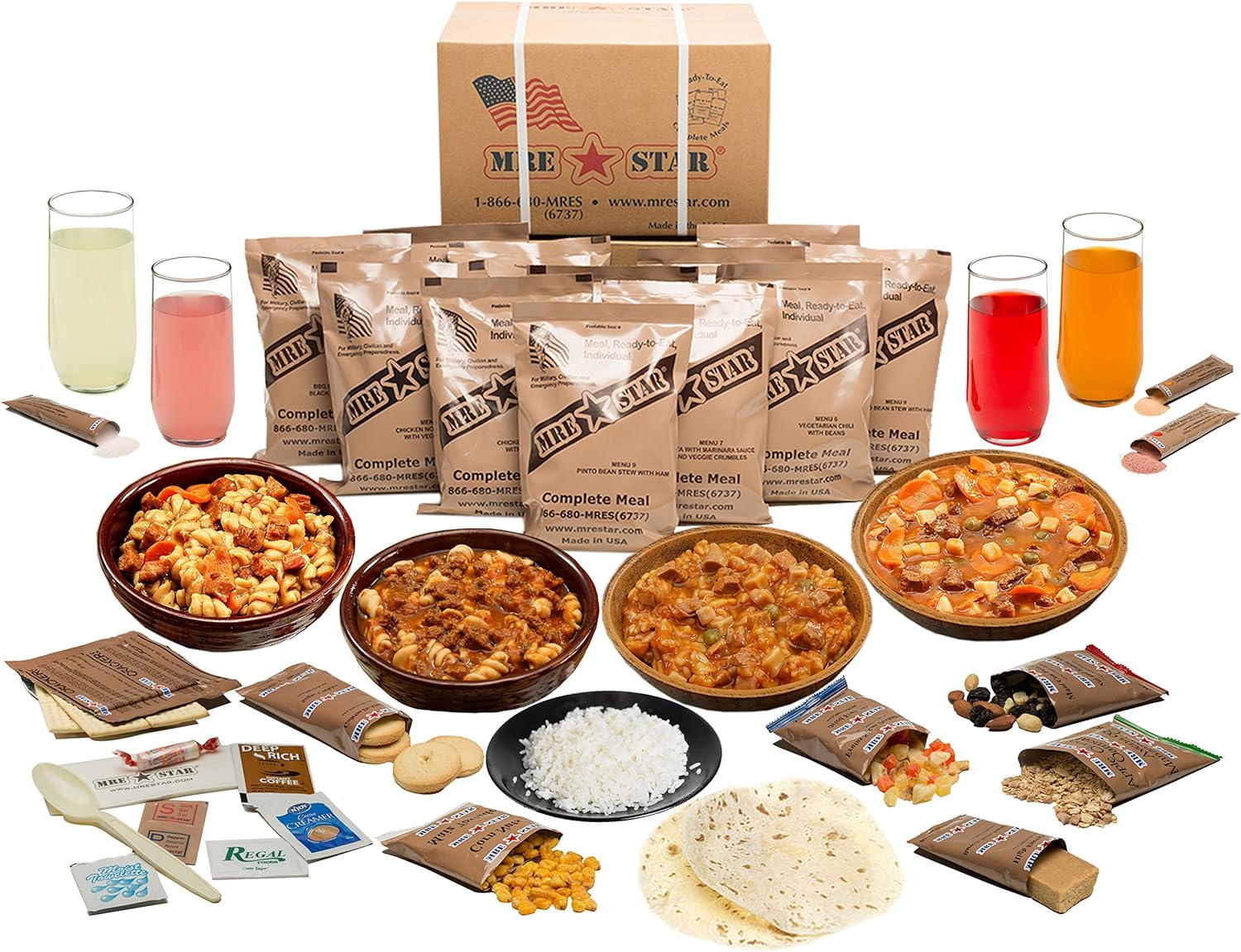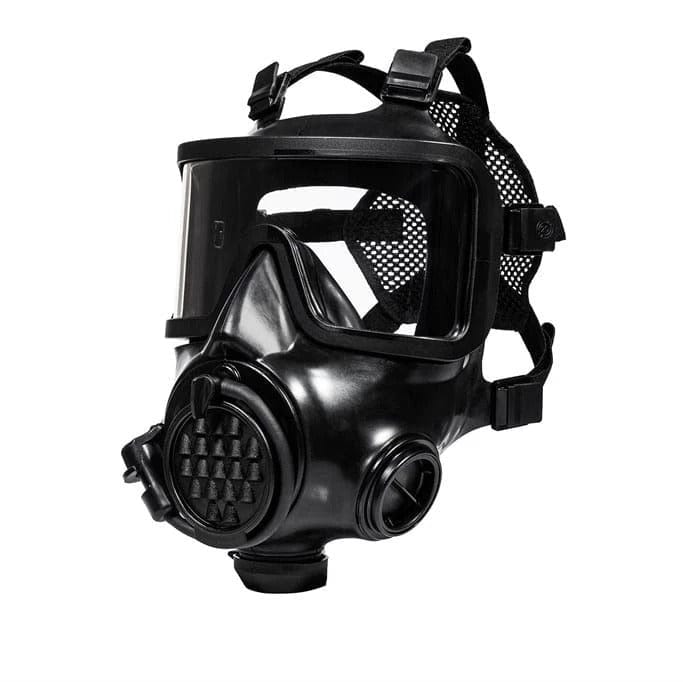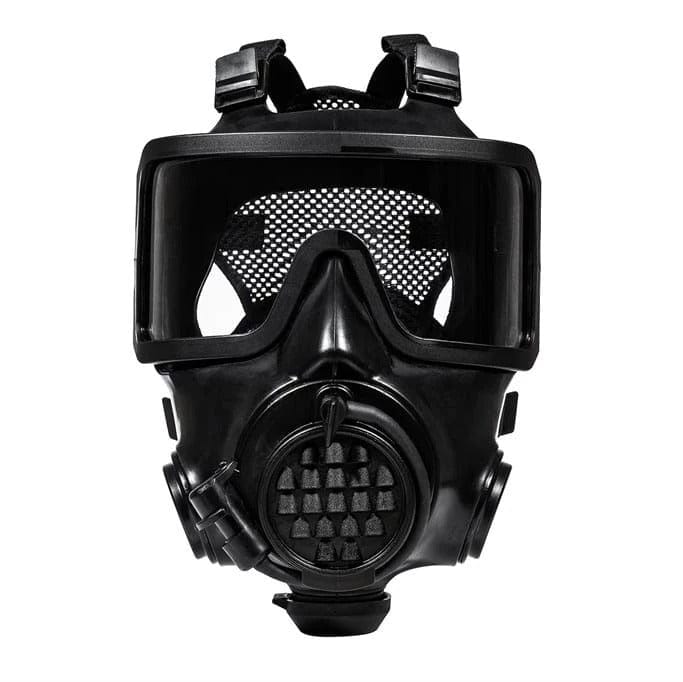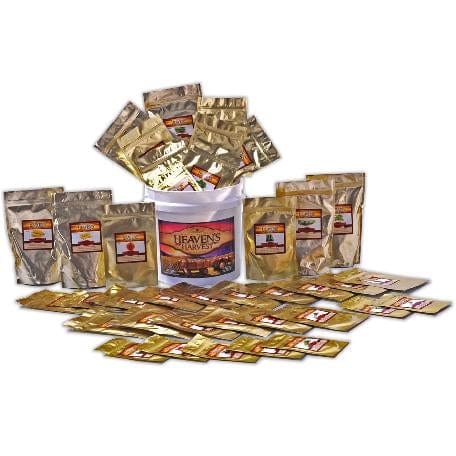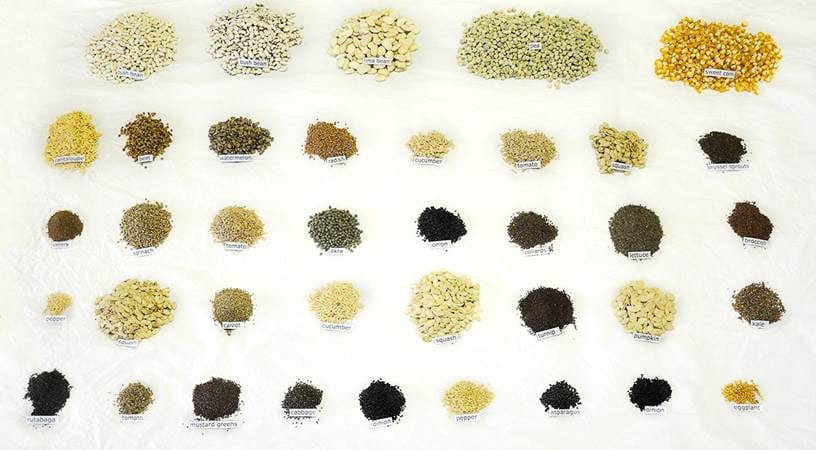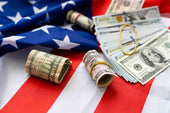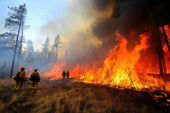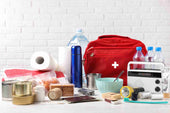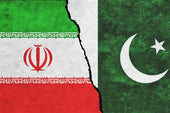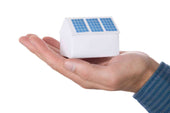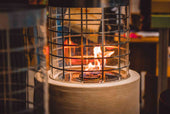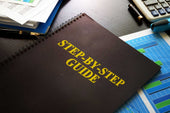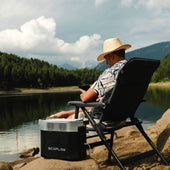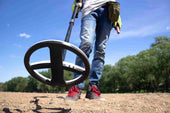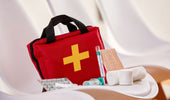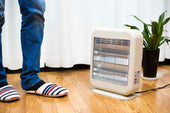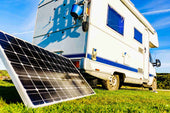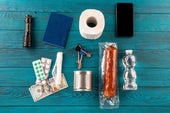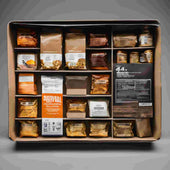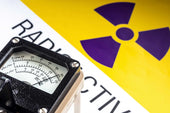Safe Deposit Box: Where to Put Your Money?

Let's be realistic. We exist in a world that operates on digital everything. Your bank account, your bills, your paycheck, and even how you transfer money to a friend.
But what if the system fails? I'm not referring to some movie plot. I'm referring to actual events that have occurred. Banks are locking up accounts.
Power outages are bringing down entire networks, hackers are infiltrating systems, and governments are prodding digital-only money that could be traced or shut off with the click of a mouse.
That is what folks are talking about when they speak of a digital meltdown. And if that occurs, your banking application will do very little for you.
Most individuals nowadays believe that cash is old-fashioned. But when the card reader fails and you are unable to get anything from the ATM, cash is gold. It is easy, it is quick, and it works when everything else fails.
If you are concerned about being prepared, whether you are a full-fledged prepper or merely someone who wants to have their bases covered, having physical cash on hand makes sense.
This is not about fear-mongering. It is about being prepared for the types of things that catch everyone else by surprise.
In this article, we will discuss how to properly store physical cash. We will discuss how much you should have, where to place it safely, and how to secure it so that it is there when you need it most. Nothing glamorous. Just good, solid advice that works.
Why You Should Be Concerned About a Digital Collapse
If you believe your money is secure just because it is in a bank account at an FDIC-insured bank, think twice.
The vast majority of individuals take for granted that the Federal Deposit Insurance Corporation's deposit insurance will cover their savings.
True, the FDIC does insure deposits up to some level, but that only benefits you if you can access your funds. And in a digital collapse, access is the first thing to go.
We are talking about situations like massive power grid failures, major cyberattacks, or even government overreach. These are not just theories.
They have happened. Think of the bank runs during the Great Depression, or the more recent freezes on accounts during times of protest or crisis.
At those times, it doesn't matter how much insurance you have. If the system crashes, you can't pay bills, buy groceries, or even withdraw money from an ATM.
The issue is that we depend too heavily on online banking. We tap cards, use apps, and expect our banks to be up at all times. But computer systems are susceptible.
They can be hacked into. They can crash. And when they crash, your checking accounts and savings accounts may as well be non-existent.
This is why most individuals in the survival and prepping community hold it as true that one should learn to stash physical currency in a digital collapse.
Physical cash affords you immediate access to your very own money. It doesn't depend on a network or the approval of a bank holding company.
You can spend it immediately to make purchases, barter goods, or pay emergency expenses.
Even if your deposits are federally insured, there is still a risk of delay, confusion, or complete failure. And keep in mind that FDIC insurance is designed to cover failed banks, not safeguard you against power failures or cyberattacks.
The FDIC runs receiverships and attempts to pay back depositors, but it takes time. During a crisis, time may be something you don't have.
This is also the reason why most preppers prefer to purchase gold or silver. Bullion or coins are tangible assets that have value outside the banking system.
They are not subject to inflation like currency, and they do not depend on a digital record. Having gold or silver stored along with your cash provides you with an added safeguard.
Of course, you must keep your money in a safe place. A fire or flood in your house can burn or destroy paper money if you don't store it under the proper conditions.
Fire-resistant safes will hold up under heat that would otherwise destroy money and valuable papers. They are also protected against theft and water damage.
A safe deposit box is used by some, but remember, when the bank closes, you may not be able to access it.
Benefits of Holding Physical Cash

During a digital collapse, having physical money in your hand is not only wise — it might just keep you alive. When your bank account is frozen or banks go down, you are going to need a backup that functions. That is where cash is.
Instant Access
The first advantage is instant access in times of crisis. You don't have to wait for approval, pay fees, or pray your account clears. You simply use it.
In the event of a Great Depression-scale crisis or cyberattack, your bank deposits and even your insured bank may be inaccessible. Cash in hand is liberty.
Privacy
Second, privacy. Each card swipe or digital wallet swipe is recorded. When you pay with cash, your transaction is your own. Nobody has to know what you're purchasing, where, or why. That freedom can be empowering.
Flexibility
Third, cash allows you to haggle or exchange when all else fails. During a digital blackout, folks will be hungry, need to fuel up, and will have to live. Your currency is now a vital commodity, even more so when coins and small bills are involved.
Ultimately, it's about diversification. Having actual assets, such as cash and gold, not simply ephemeral digits in deposit accounts, diversifies your risk.
You aren't simply relying on some bank holding company or some FDIC rule of insurance to bail you out. You are getting into the protection business for yourself.
How Much Physical Cash Should You Keep?
There isn't a perfect number, but this is the way to think about it. You need enough money on hand to take care of necessities in case everything goes haywire.
That could be a power outage, flood, house fire, or total system failure where banks and financial institutions shut down.
Begin by asking: What do my family and I need each month to live? That means food, gas, meds, rent, water. A good benchmark is to have 1 to 3 months of vital expenses in cash.
If you are alone in a small town, that amount is less. You've got a large family in a pricey city? You will need more. Lifestyle, location, and number of family members are all factors.
You don't need it all in hundreds. Actually, don't do that. Use small bills — ones, fives, tens, perhaps a few twenties.
These are more convenient to exchange, pay, and transport. In an actual crisis, individuals may not be able to break a hundred.
This is your emergency fund, not your long-term cache of silver, gold, or bullion. Should you purchase gold, keep it in a separate safe place.
Keep your money in locations that are secure. Employ fireproof safes that can survive the heat of a house fire.
A safe deposit box at an FDIC-insured bank sounds safe, but remember—FDIC deposit insurance only covers deposit accounts, not what is stored in those boxes.
If you lose that money, the FDIC won't cover it under federal law.
The bottom line is that you hold cash because deposits, not folks, are insured by the FDIC.
And when things turn south, no insurance companies or bankers are showing up to bail you out. You're your own insurance. Be prepared.
Where to Store Physical Money Safely
Suppose you are serious about being ready for a digital collapse. In that case, learning how to store physical money during a digital collapse is one of the most valuable things you can do.
When the systems crash and your bank account is frozen or worthless, you will need cash, precious metals, and other valuables to continue going.
But it is not merely possessing these assets. It is storing them wisely.
A. At Home
The most immediate place to stash your cash is in your own home. When bad times hit quickly, you don't want to have to access your money through banks or pay fees.
Keeping money in hand allows you to purchase food, gasoline, and other necessities even when banks are closed.
But there are dangers. A house fire can burn paper money, a flood can ruin it, and it can be stolen at any time. That is why you must safeguard it properly.
One of the best methods for securing cash in the home is through the utilization of fireproof safes capable of withstanding heat levels that will preserve your stash in the event of fire.
These safes also help prevent water damage and can protect valuable documents and assets. Don't be stingy.
The appropriate safe can make all the difference between preserving your emergency stash and losing it all.
Never have all your money in one place. Spread it around the house. Use hidden hiding places such as behind furniture, inside hollowed-out books, or in secret drawers.
Don't hide it in obvious places. Burglars learn all the stereotypes. If you really want it to be safe, you must be unpredictable.
B. Outside the Home
Having money hidden elsewhere is prudent if your home is breached or you are away during a disaster. One choice is a safe deposit box.
Many FDIC-insured banks provide these, but here is the twist — FDIC deposit insurance does not apply to the contents of a safe deposit box.
That includes cash, gold, and silver stored in such boxes, and the Federal Deposit Insurance Corporation does not insure them. The FDIC only insures deposits in deposit accounts such as checking or savings.
If the bank or the system fails, you may not be able to access your box and will not be reimbursed. So, although it is available, it shouldn't be your sole option.
Some people choose to leave a sealed envelope of cash or coins with a trusted relative or friend. This works best if they are on board with your prepping goals and live in another area.
Think of it as diversifying your insurance coverage against disaster.
Another technique is making a secret cache somewhere in the great outdoors. You can utilize waterproof containers, such as PVC pipes or military cases.
Close them up tight, plant them on private property, and either secretly mark the location or commit it to memory.
This is a prepper trick that can save money even if your house is lost. Be sure to cycle through your stash periodically so you don't forget about it or lose it.
C. Portable Storage
You should also have some emergency money on hand—not a lot—just enough to buy gas, food, or a motel.
Keep it in your wallet and store a little more in your go bag or car kit. During a collapse, card readers and ATMs won't work. You need money that works.
You may also carry a few precious metals, such as small gold pieces or silver coins. These are more convenient to sell or exchange than huge bullion bars, and they retain value in inflation or collapse.
However, keep your movable storage light and flat. It's all about being low-key.
Learning how to store physical cash in a digital meltdown is all about maintaining freedom. You can't rely on a bank holding company, deposit insurance, or FDIC insurance when the lights go out on the grid.
Although the FDIC protects deposits up to a certain amount, such insurance is useless in the event of a complete failure of access.
A natural disaster, government tyranny, or a reoccurrence of the Great Depression may not be something you can rely on to get you through it, but how prepared you have been may be your only hope.
Extra Ways to Protect and Diversify Your Finances

When considering where to keep physical money during a digital collapse, consider that cash alone may not be sufficient.
Diversifying your holdings can insulate you when things fail. History has taught us that having all your eggs in one basket, such as a bank account at one FDIC-insured bank, is dangerous.
Although the Federal Deposit Insurance Corporation, or FDIC, does insure deposits up to some amount, that will not benefit you much if the currency itself loses value or you are not able to retrieve your deposits during a crisis.
Precious Metals
Investing in precious metals such as silver and gold is a smart investment choice.
Both of these have been valuable for many centuries, even before banks and digital money systems were around.
Silver coins, bullion, or small silver bars are physical objects that you can hold in your hand. They do not rely on any technology and can grow or even appreciate in value when there is inflation.
Barterable Goods
Another excellent suggestion is to have barterable goods in stock. During a crisis, individuals will continue to require useful items such as medicine, fuel, food, and hygiene items.
These items can be bartered and are still valuable even if money is worthless. They are relatively cheap to store and can prove essential when others are scrambling to find basic supplies.
Financial Tools
You might also want to include offline financial tools such as paper ledgers, receipts, and contracts. These basic tools can be used as evidence of purchases, loans, or agreements.
You don't want all your vital data stuck in a system that might be lost in an emergency.
Finally, be sure to store backup ID documents and other records safely. Consider using fireproof safes to keep your cash and personal records safe from a house fire, flood, or theft.
Safe deposit boxes are another alternative, but keep in mind they are not FDIC-insured.
Although FDIC insures bank deposits, safe deposit boxes are not included in that coverage, so be sure to remember that.
Security and Privacy Considerations
When you have physical money, privacy and protection become paramount. The first law is straightforward: do not talk about your reserves openly.
Allowing others to know your plans subjects you to potential risks such as theft or unwanted scrutiny. Even telling the wrong individuals about your preparations will get you into trouble later.
The quieter you remain, the better your reserves will be protected.
It's also vital to educate family members in basic procedures for controlling and securing cash reserves.
This entails familiarizing oneself with the location where money is kept, learning how to liquidate it during an emergency situation, and safeguarding that knowledge.
It is crucial that those involved realize the seriousness of such preparations and deal with them gingerly.
Make sure that everyone can act independently if something were to go wrong with you or if they must act swiftly in an emergency.
Also, don't forget to periodically rotate or inspect your hidden cash for possible damage. With time, paper currency can suffer from exposure to humidity, mold, or simply wear and tear.
Keeping money in wet conditions can ruin it, so you won't be able to use it when you need it the most.
Monitor the condition of your money, particularly if it's kept in locations such as hidden safes or secret containers.
Periodically inspecting them for mold or damage will help ensure they're still usable when the moment arrives.
If you're keeping logs of your stash locations or notes about your stash plans, it's important to follow encryption and OPSEC principles.
Avoid writing anything down in a way that could be easily understood by someone who shouldn't have access to this information.
Use encrypted digital storage for important details, or consider creating a code system.
This keeps your stash plan safe from prying eyes.
Keep in mind that operational security (OPSEC) is not only about the stash itself, but also about keeping everything around it safe from anyone who may stumble upon your plan.
Final Thoughts
In a world with growing exposure to digital systems, being prepared for the unexpected is necessary.
By holding physical money safe, spreading your assets, and keeping your funds out of reach from central systems, you are able to defend yourself when times get tough.
While ease of convenience can be found through the digital age, creating a resilient and analog foundation of funds will keep you ready for whatever happens.
Begin creating your cash cushion today, take the right measures to safeguard your wealth, and be assured that readiness is the key to riding out any tempest.
Begin now and have peace of mind about your financial future, regardless of what lies ahead.


